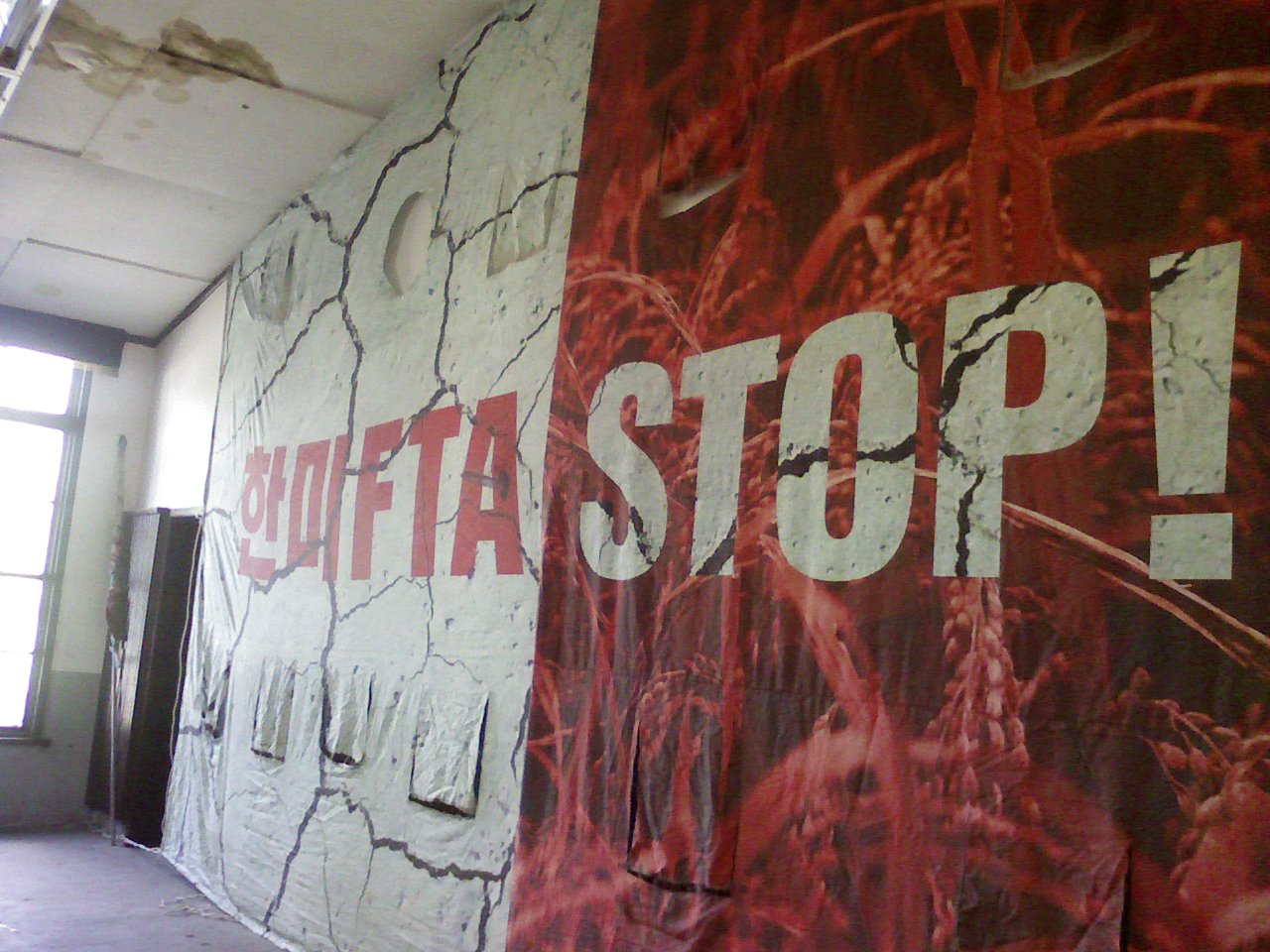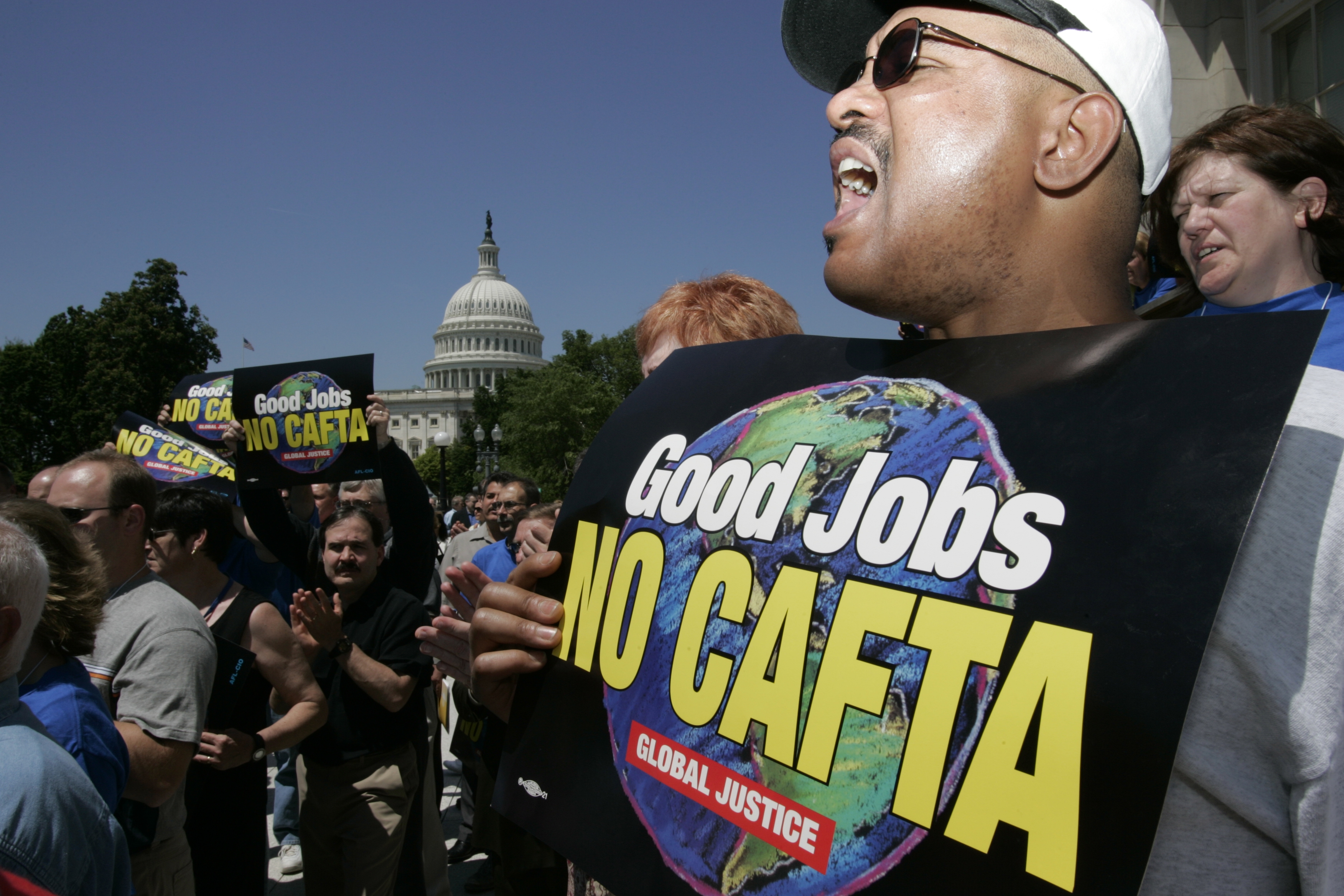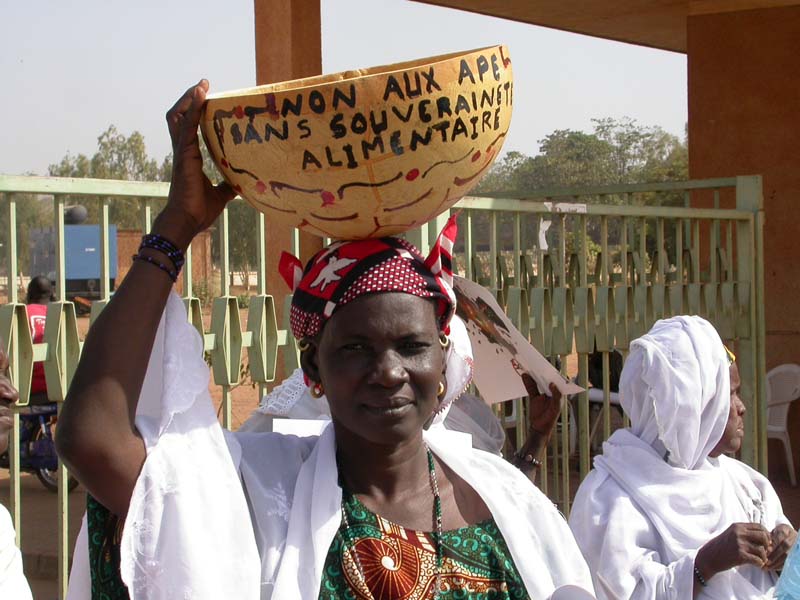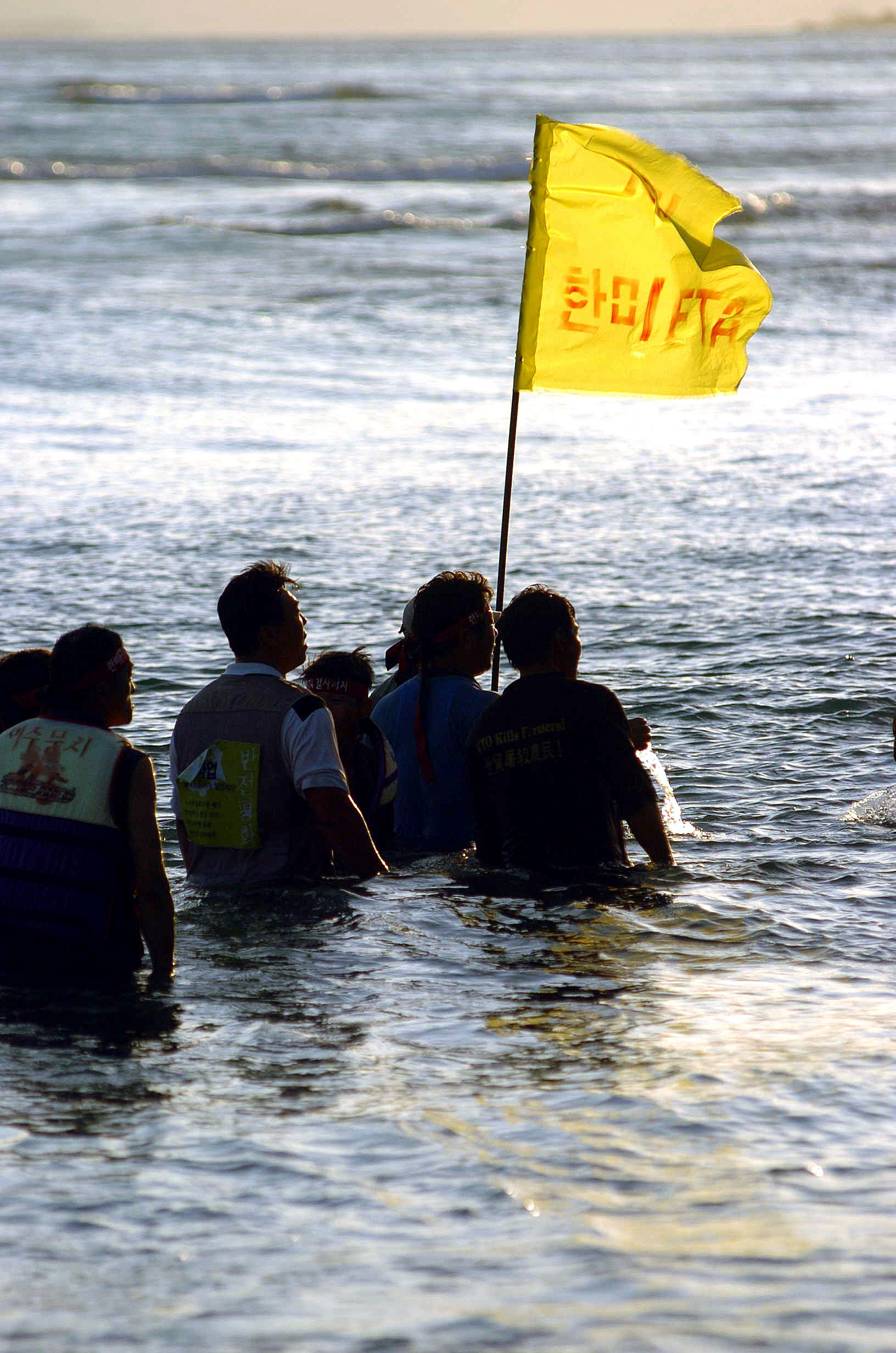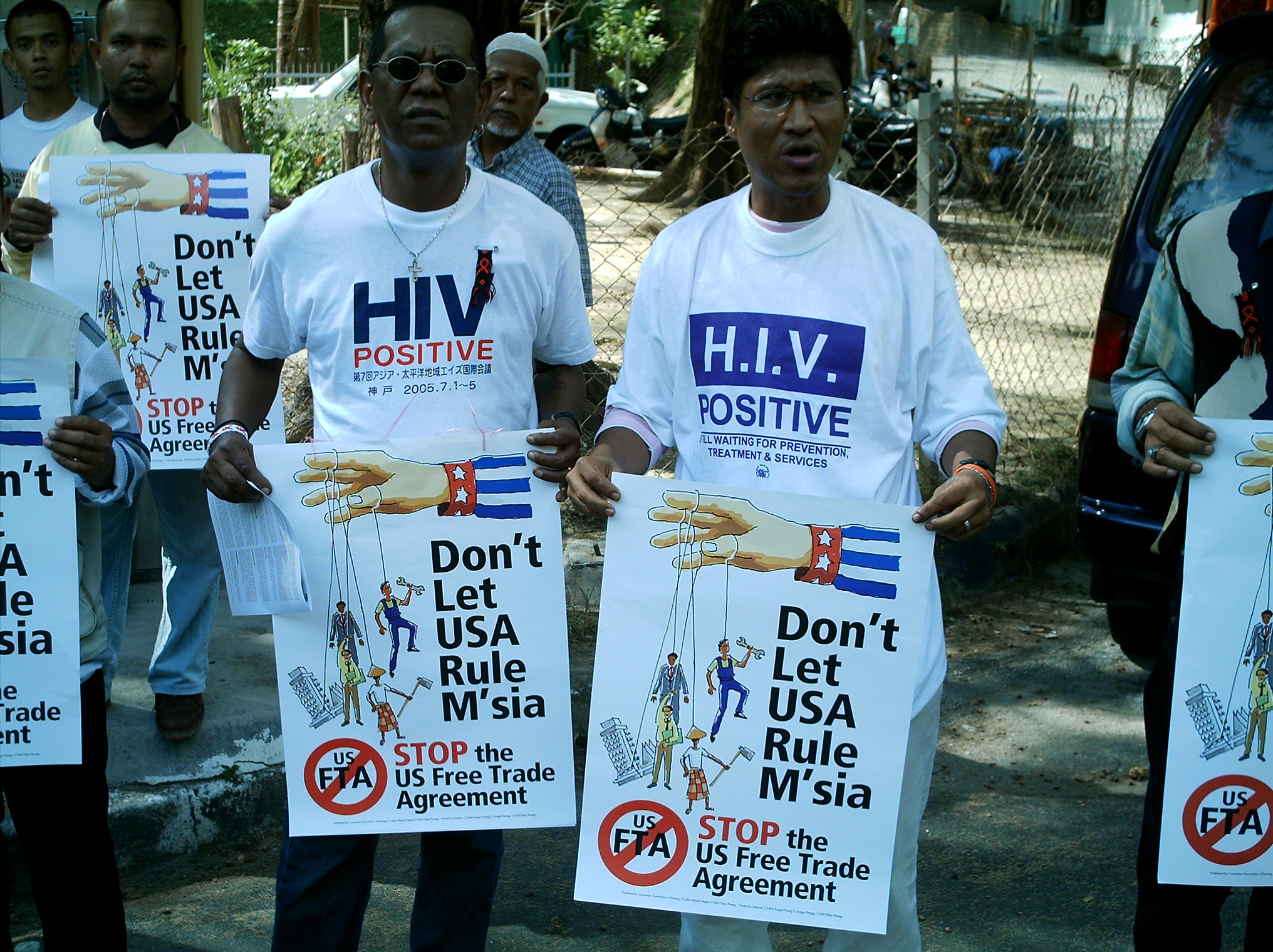Social activism around FTAs
All the versions of this article: [English] [Español] [français]
Social activism around FTAs
bilaterals.org and GRAIN
September 2007
Social movements and people’s organisations have been fighting FTAs for decades. Focused activism emerged in Latin America in the 1990s, when Washington began pushing all sorts of bilateral deals on specific governments to expand the powers of US firms in the region: intellectual property agreements, investment treaties and eventually FTAs. Groups in Colombia, Ecuador, Nicaragua and elsewhere quickly understood the power of bilateral deals as emergency votes were sprung on parliaments concerning surprise treaties from finance or commerce ministries which committed their countries to new obligations such as seed patenting or the right of US companies to sue their governments. People saw that the machinery of democracy and public law - congresses, constitutions and courts - was being deliberately subverted to give new powers to US corporations, from Enron to Occidental Petroleum. It was no accident that the Zapatista Army of National Liberation launched its uprising against neoliberalism from Chiapas, southern Mexico, on the day that NAFTA came into force, 1 January 1994.
Latin America has been the scene of very important social struggles against bilateral trade and investment deals:
- the ongoing struggle against NAFTA, especially by Mexican farmers and indigenous communities, such as the campaign "El campo no aguanta mas" (the countryside cannot take any more), not to mention the struggles for justice and dignity waged by maquiladora workers in the north of the country, near the US border
- strong community resistance in Buenos Aires, Argentina, against the privatisation of water supply and sewerage systems by Azurix, an Enron subsidiary, under a US-Argentina BIT (1999-2001)
- the popular uprising in Cochabamba, Bolivia, against a Bechtel subsidiary that took over the public water supply system under a Netherlands-Bolivia BIT (2001)
- the continental anti-FTAA (Free Trade Area of the Americas) campaign, which created a strong understanding of Washington’s overall bilateral trade and investment agenda in Latin America (particularly during the 2001-2005 period)
- local communities’ struggle against the building of Spanish (ENCE) and Finnish (Botnia) pulp mills on the Uruguayan side of the river separating Uruguay and Argentina, under BITs between Montevideo and the firms’ European host countries (2003-2006)
- the organising of popular referenda and constituent assemblies where US FTAs were voted down by the people in Colombia and Ecuador (2006)
- new emerging struggles across the Andean Cordillera against the expansion of Argentine mining operations in Chile under a BIT between the two governments
- popular resistance against water privatisation in El Salvador, through a change in national law to conform with CAFTA, which has most recently resulted in 13 people being charged as terrorists under the anti-terrorism law, which people also see as stemming from CAFTA (2006-2007)
In Africa and the Arab world, several hotspots of FTA struggle have emerged:
- South Africa was an early (2000) victim of an EU FTA, the effects of which percolated over time. While there has been no specific anti-FTA or BIT movement to speak of in the country, the politics of neoliberalism that the EU FTA imposed on South Africa have spawned important urban social struggles, especially against water and electricity privatisation and for access to essential medicines (against patents)
- At the southern Africa level, a broader awareness of bilateral and regional investment treaties has spawned much co-operative labour union research and education work (early 2000s)
- Morocco was the scene of a very important social struggle against the US-Morocco FTA, where mobilising issues included the implications of the deal for health, cultural diversity, Morocco’s political and economic autonomy and the entire negotiating process (2003-2005).
- Most recently, a broad social front of opposition to the EU-Africa EPAs, which were to be signed by 31 December 2007, has built up across sub-Saharan Africa. These deals will totally change Africa’s economic relations with Europe, and the implications have many different sectors fighting to stop or at least delay the deals, partly in conjunction with European NGOs (2005-2007).
In Asia and the Pacific, social struggle against FTAs has been patchy up to now:
- There was relatively early contestation of FTAs in New Zealand, where a number of groups and unions had opposed an FTA with Singapore, and helped to stop New Zealand-Hong Kong FTA talks.
- The Koreans have led the strongest national movements against FTAs, starting with the Korea-Chile deal which farmers and workers strongly opposed (2001-2003). This was followed by a massive popular resistance against the US-Korea FTA (2005-2007) - the largest organised movement in Korea since the student uprising of 1987. Now, they are trying to stop the EU-Korean FTA.
- Australian society went through a tumultuous struggle against the US-Australia FTA (2003). From early debates over the implications for Australia’s health care and food systems, the FTA became a major electoral issue about Australia’s sovereignty.
- A strong Thai movement against FTAs emerged with the negotiations of the Australia-Thailand and US-Thailand deals (2005-2006). This led to the formation of a national anti-FTA coalition that has also been fighting the Japan-Thailand, China-Thailand, New Zealand-Thailand and now the EU-ASEAN FTA. The issues of concern have been different under the various deals, but farmers’ livelihoods, access to medicine and the question of who benefits from these deals have been key mobilising questions.
- A small social front of opposition to the US-Malaysia FTA has grown in Malaysia (2006-2007).
- In the Philippines, various sectors have been working to stop the Japan-Philippines Economic Partneship Agreement (2005-2007).
- Regional solidarity and networking is starting to build up now around the EU-ASEAN FTA negotiations (2007).




